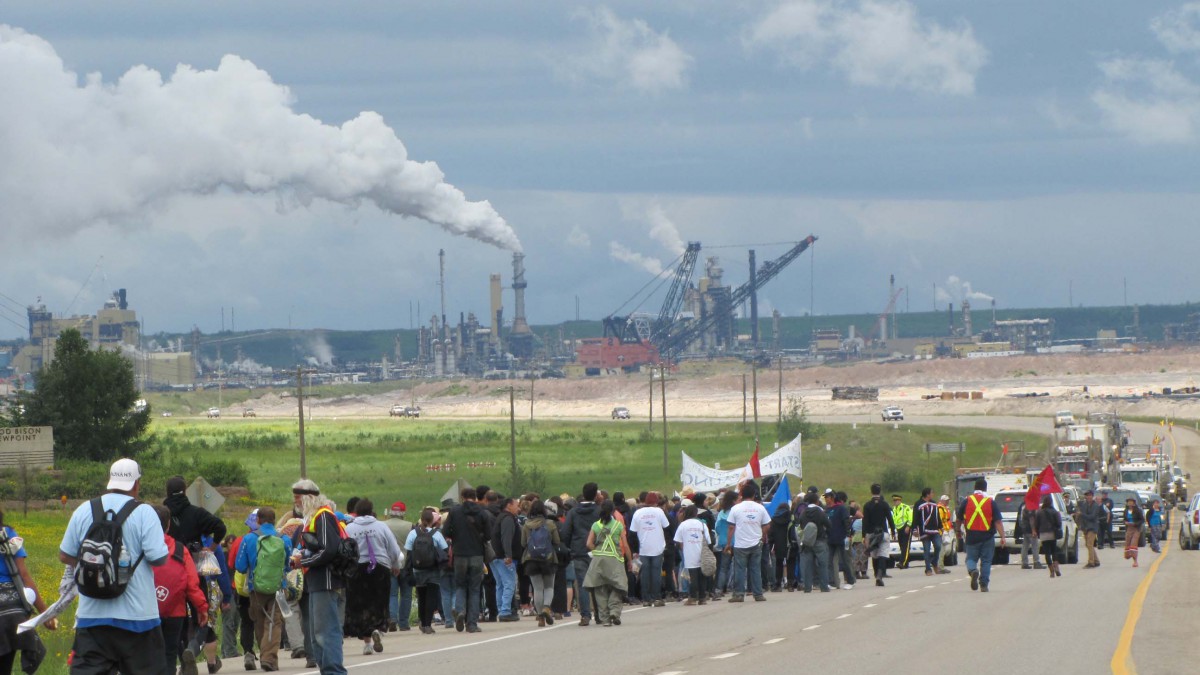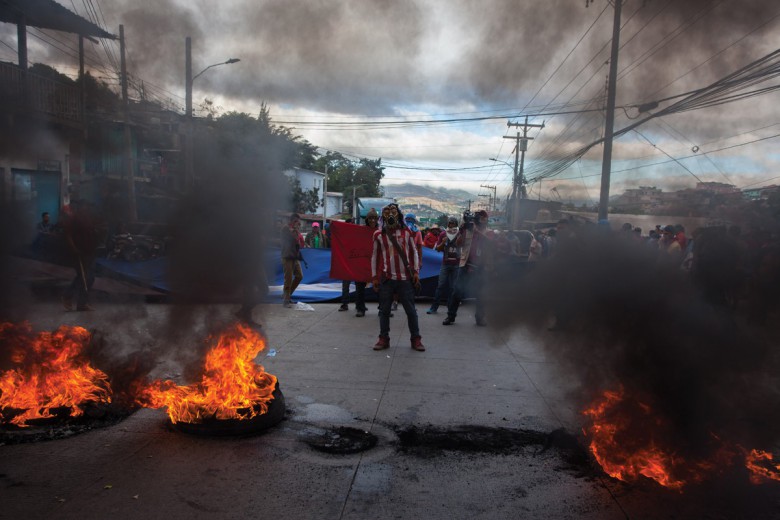There is absolutely something to be said about the merits of an NDP government in power, particularly relative to Progressive Conservatives. Bye bye, PC dynasty!
Manitoba, where I live, is surrounded by provinces imposing serious cuts to health care and education alongside privatizations and fee increases to public goods.
Despite this, the NDP is holding its ground and not laying off nurses or other front-line workers. As a result we have among the lowest unemployment rates in the country. It will be interesting to see how Alberta’s NDP governs.
But there is added weight to Alberta’s election outcome: Manitoba is not sitting on trillions of dollars worth of bitumen, nor is it a leading contributor to global warming. The Alberta NDP’s action, or inaction, around the tarsands will have a global impact.
Their statements to date are worrying in this respect, as they have already pledged to expand refineries and support major pipelines, including Energy East. We have heard nothing about the necessary and immediate transition away from fossil fuels.
This is where the grassroots comes in, and where a new set of problems emerges that are all too common to Manitoba.
Rekindling the radical imagination
Political horizons and aspirations have been heavily narrowed after decades of neoliberalism in Canada. But we need to be honest about our reality, and the political implications are radical.
Global warming is the result of capitalism’s requirement for compound growth, profit, and exploitation at all costs. Social democracy will not pose any challenge to this.
Even if technological innovation and energy diversification save us from the worst of global warming (which remains a big question), we have not escaped the reality that capitalism must grow and exploit at a compound rate in order to survive.
Social democracy of any flavour will not pose any challenge to this political and economic system.
There is an urgent need to ramp up the grassroots struggle against the tarsands, pipelines, multinational corporations, and international finance. This urgent challenge will have to come from below.
The NDP, labour, and the grassroots
The NDP and the state itself will absorb lots of young existing and potential activists, whether as party staffers or partisan appointments to the bureaucracy. This draws away from already slim numbers on the ground.
In Manitoba, the labour union leadership, academics, NGOs, community groups, and segments of the Indigenous community are deeply tied to the NDP after 16 years of collaboration. This will likely replicate itself in Alberta in the coming months and years.
This makes some incremental reform possible, however moderate, but it absolutely stifles militancy, grassroots movements, and creativity.
And in Manitoba, every incremental reform has been put to the wayside in favour of keeping the party in power. Manitoba’s NDP have for years avoided strengthened anti-scab legislation and implementing 50-per-cent-plus-one union accreditation, yet labour leadership are so closely tied to the party that they do not speak out.
Many community groups, NGOs, and social enterprises are funded by the party in Manitoba. These organizations also hire solid political activists, who then have to mute their voice and actions for fear of biting the hand that feeds. Particularly in times of austerity, organizations refrain from upsetting their paymaster.
Combining all of these elements, it is no surprise that active grassroots movements in Manitoba and the radical left are fragmented, small, and relatively weak. Militancy of any kind is virtually absent. This at a time when a Tory is mayor of Winnipeg, the provincial NDP are stumbling, and federal Conservative legislation continues to hammer the province.
Grassroots initiatives are nevertheless underway that show real promise in the face of these obstacles.
Carving out autonomous space
The grassroots groups that have managed to carve out independent political space from Manitoba’s NDP are among the most creative and dynamic.
Indigenous organizers are at the forefront, but there are small and creative initiatives in the LGBTQ2 community, in fighting pipelines, among sex workers, and elsewhere.
Creativity emerges wherever there is autonomous political space. The problem is there is so little of it given the pervasiveness of the NDP.
The problem is quite the opposite in Alberta, with the pervasiveness of deeply entrenched conservative elements and the overwhelming political and economic power of the oil industry.
A challenge for Alberta’s grassroots will be carving out critical distance from the NDP while fighting together where possible against economic behemoths and a pervasive Tory network. A fine balance can be struck between radical and social democratic collaboration on common interests, as Manitoba’s grassroots have proven when at their best.
Another concern is the Alberta NDP’s ability to win concessions and build bridges with some Indigenous communities and not others. Divisions could emerge there.
There is no shortage of challenges in building vibrant grassroots movements with radical aspirations while navigating an NDP government, especially in the face of overwhelming economic and political power from the oil and gas industry and their political allies.
Embracing these challenges is necessary and urgent.







